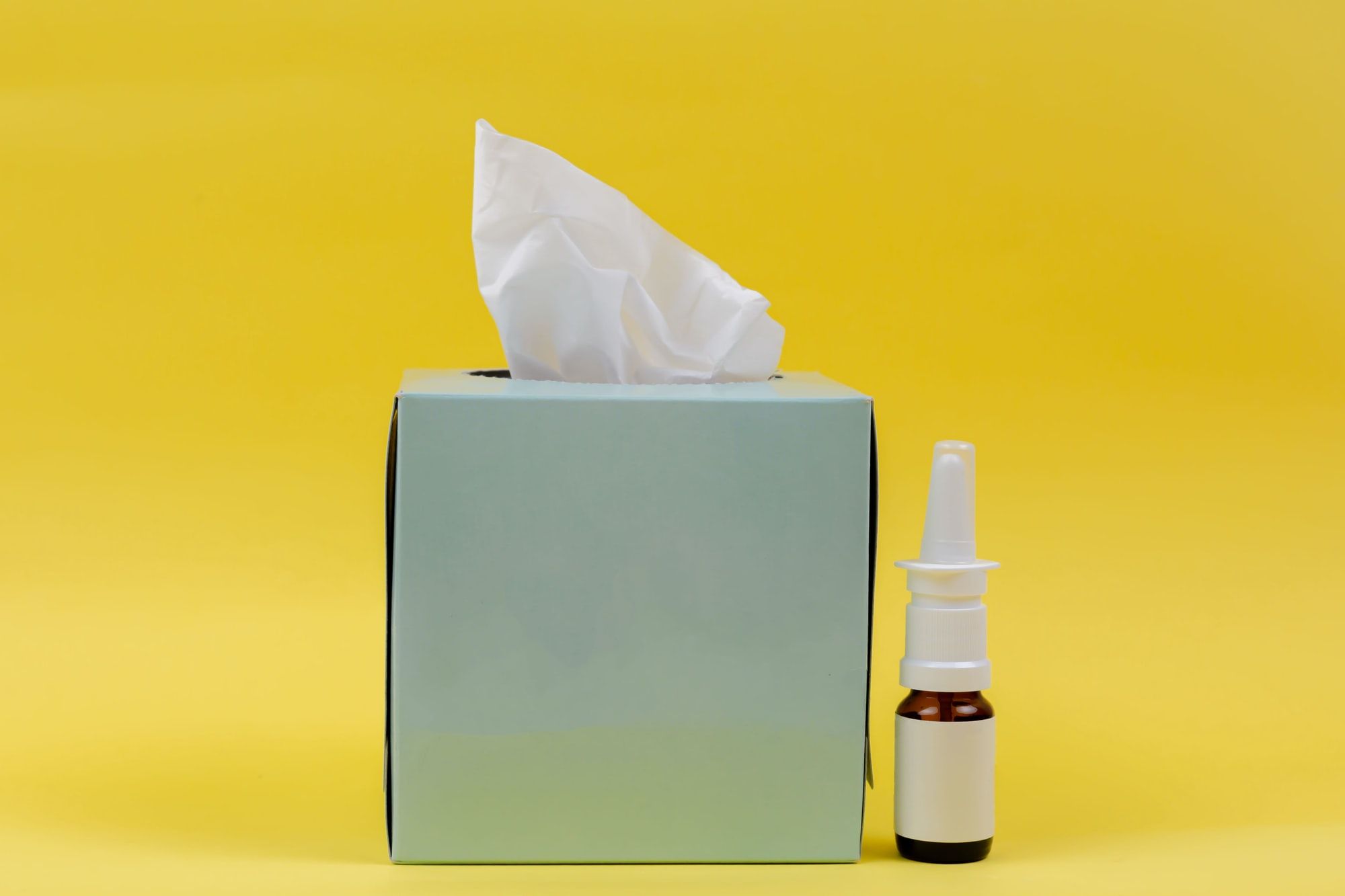Serious Question: Should You Exercise While Sick?
Wondering if exercise While Sick is ever a good idea? Well, the answer to this depends on the specific ailment you have. Discover more in this article!

You’ve been staying consistent with your workout routine–keeping up with all the weightlifting, endurance training, and even the necessary mobility sessions. You're crushing it ?
Nothing can stop you from achieving your dream physique now!
Then all of a sudden, you're hit by teary eyes, sore throat, and sniffles. Uh-oh. You're sick.
What should you do? Should you skip that heavy deadlift session or afternoon yoga class for an afternoon nap?
Will it be hard for you to get started again once you miss a session (or 2, or 3)? But… Are you compromising your recovery–and your health–if you continue working out?
Questions, questions. In this article, we clear up the confusion once and for all when it's OK for you to exercise while sick and when it's best to stay home and rest.
Disclaimer: Before you go off reading, take everything written here as a general guide. If you are feeling under the weather listen to your gut and don't push your body, and it's always better to consult medical professionals when in doubt.
Exercise while sick: when is it safe?
Many health experts use the ‘above the neck’ rule when advising patients on whether they should continue to exercise while sick.
So, according to this theory, if you’re only experiencing symptoms like sneezing, a stuffy nose, or an earache, it’s probably fine for you to engage in mild to moderate physical activity. Here are a few additional pointers relating to the symptoms mentioned above:
• Mild cold – There’s typically no need to skip your workout if you have a mild cold. That said, if you feel a little low on energy, you might want to consider reducing the intensity of your session or shortening its duration. Also, be considerate! Remember to practice proper hygiene, so you don't spread your cold to others sharing the same space as you (no matter where you're exercising).
• Earache – Working out with an earache is typically fine, as long as your sense of balance is not affected. You don’t want to lose your balance on a set of heavy squats! You’ll also have to rule out ear infections, as these could potentially cause fevers and other symptoms that make working out unsafe.
• Stuffy nose – Only continue working out if your stuffy nose is related to nasal congestion. In fact, exercise can temporarily open your nasal passages, relieving nasal congestion. However, if your stuffy nose is associated with a fever or other symptoms like a persistent cough, you should consider resting.
• Mild sore throat – If you're experiencing a mild sore throat caused by allergies (e.g. pollen or pet's fur) or a cold, working out is likely safe. Just be sure to reduce your session's intensity or duration if you notice a decrease in your stamina.
If you're still unsure if you should continue to exercise while sick, here’s a simple test.
Workout for 5 to 10 minutes. If you start feeling awful (e.g. wheezing, unable to catch your breath), call it quits. Take care of yourself first. And besides, you’re not going to be able to put in 100% even if you push through the session. Why not rest–then come back more determined than ever to crush your workouts?
Side note about exercising after getting vaccinated
Many people also wonder if it’s safe to push through their workouts after getting vaccinated. Generally, the common consensus amongst medical professionals is that it is safe to exercise after vaccinations.
Interestingly, there have also been small studies suggesting physical activity to be beneficial after getting vaccinated–particularly for the flu shot.
More specifically, these studies have shown increased antibody development (and thus protection) from the flu vaccine after exercising. And when you think about it… This makes perfect sense. Exercise is known to bolster the immune system, after all!
That said, these are still small studies. It’s also unclear if these observed benefits apply to other vaccinations (e.g. HepA, HepB, HPV).
Therefore, the prudent thing to do after getting vaccinated should be to avoid very strenuous exercise for a couple of hours after. Observe for any adverse symptoms. Listen to your body and only carry on with your workout if you're feeling up to it.
When is exercising a bad idea?
It's worth noting that there are some instances where exercising while sick is just not that great an idea. And one of the surest signs that you should retreat to the comforts of your sofa/bed is if you're down with a fever.
A little background: when you have a fever, your body temperature rises above its normal range, which is around 37°C.
Exercising when you’re down with a fever–with an already high internal body temperature–just leads to excessive sweating, which can leave you severely dehydrated and at-risk for further illness and injury.
Besides… Having a fever not only decreases muscle strength and endurance but also impairs precision and coordination, increasing the risk of injury (e.g. stumbling while running/misjudging the barbell’s distance from your head).
Another scenario where exercising is a definite no-no while you’re sick is when you have the flu.
That's because the flu typically comes with symptoms like chills, nausea, diarrhea, and vomiting–which can take 3 to 5 days to taper off. Vomiting and diarrhea increase the risk of dehydration, and as mentioned earlier, this can hinder your recovery (or worse: make you sicker!)
Plus, be aware that the flu is highly contagious. You don't want to spread the virus to others.
Be sure to take the time to recover fully
If you've taken a few days off after a nasty bout of fever/flu, you're understandably anxious to get back to your routine. But before you do that… Always make sure that you're fully recovered!
Worried about your gains (both muscle- and strength-wise)? You really don’t have to.
Several studies show that muscle loss only begins approximately 3 weeks without training for most people, while strength starts to decline around the 10-day mark. So, honestly, taking a week off your training is not going to set you back by much.
And even after you’ve fully recovered, keep in mind that you shouldn’t jump straight into the routine you were doing before getting sick. Gradually ramp up the intensity and duration and see how your body responds.
Sure that you've recovered - and ready to get back into the groove? Then be sure to download GymStreak, the AI-powered app that helps program your workouts in a way that'll ensure you achieve your dream physique in the most time-efficient manner possible.
Get GymStreakReferences
Baraniuk, J. N., & Merck, S. J. (2008). Nasal Reflexes: Implications for Exercise, Breathing, and Sex. Current Allergy and Asthma Reports, 8(2), 147–153.
Ciuman, R. R. (2013). Inner ear symptoms and disease: Pathophysiological understanding and therapeutic options. Medical Science Monitor : International Medical Journal of Experimental and Clinical Research, 19, 1195–1210. https://doi.org/10.12659/MSM.889815
Dick, N. A., & Diehl, J. J. (2014). Febrile Illness in the Athlete. Sports Health, 6(3), 225–231. https://doi.org/10.1177/1941738113508373
Information, N. C. for B., Pike, U. S. N. L. of M. 8600 R., MD, B., & Usa, 20894. (2020). Common colds: Overview. In InformedHealth.org [Internet]. Institute for Quality and Efficiency in Health Care (IQWiG). https://www.ncbi.nlm.nih.gov/books/NBK279543/
Ogasawara, R., Yasuda, T., Ishii, N., & Abe, T. (2013). Comparison of muscle hypertrophy following 6-month of continuous and periodic strength training. European Journal of Applied Physiology, 113(4), 975–985. https://doi.org/10.1007/s00421-012-2511-9
Ogasawara, R., Yasuda, T., Sakamaki, M., Ozaki, H., & Abe, T. (2011). Effects of periodic and continued resistance training on muscle CSA and strength in previously untrained men. Clinical Physiology and Functional Imaging, 31(5), 399–404. https://doi.org/10.1111/j.1475-097X.2011.01031.x
Taylor, K., & Jones, E. B. (2020). Adult Dehydration. In StatPearls. StatPearls Publishing. http://www.ncbi.nlm.nih.gov/books/NBK555956/
Woods, J. A., Keylock, K. T., Lowder, T., Vieira, V. J., Zelkovich, W., Dumich, S., Colantuano, K., Lyons, K., Leifheit, K., Cook, M., Chapman-Novakofski, K., & McAuley, E. (2009). Cardiovascular exercise training extends influenza vaccine seroprotection in sedentary older adults: The immune function intervention trial. Journal of the American Geriatrics Society, 57(12), 2183–2191. https://doi.org/10.1111/j.1532-5415.2009.02563.x

